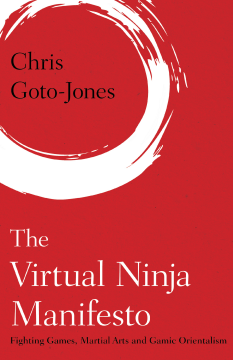
Additional Information
Book Details
Abstract
Navigating between society’s moral panics about the influence of violent videogames and philosophical texts about self-cultivation in the martial arts, The Virtual Ninja Manifesto asks whether the figure of the ‘virtual ninja’ can emerge as an aspirational figure in the twenty-first century.
Engaging with the literature around embodied cognition, Zen philosophy and techno-Orientalism it argues that virtual martial arts can be reconstructed as vehicles for moral cultivation and self-transformation. It argues that the kind of training required to master videogames approximates the kind of training described in Zen literature on the martial arts. Arguing that shift from the actual dōjō to a digital dōjō represents only a change in the technological means of practice, it offers a new manifesto for gamers to signify their gaming practice. Moving beyond perennial debates about the role of violence in videogames and the manipulation of moral choices in gamic environments it explores the possibility that games promote and assess spiritual development.
Chris Goto-Jones is Professor of Philosophy and Dean of Humanities at the University of Victoria. He is also a Professorial Research Fellow of SOAS, University of London.
This magnificent book does what I thought was impossible: it makes virtual ninja real. For aren’t fighting games spaces of deep learning and transformation, the training grounds for a prosthetic selfhood that is both virtual and real? Isn't synthetic violence a mode of personal cultivation that deserves respect? Chris Goto-Jones succeeds with his own 'miraculous reversal play,' bringing the virtual worlds of ninja into a contemporary, living public sphere, and offering a deep meditation — both philosophical and spiritual — on the timeless desire to face worthy opponents. For all you would-be ninja, this is a must-read gem.
Ian Condry, Professor, Massachusetts Institute of Technology
Often misunderstood, marginalized, and mistreated, we, the gamers, train to acquire strategic thinking and analytical skills while making life-time friendship through fighting games. Goto-Jones uncovers this kind of engagement as the practice of pure discipline. This eye-opening and ground-breaking study is deeply significant to us, the gamers, revealing the connections between what we have gained through those experiences and the martial arts. As a gamer-philosopher, Professor Goto-Jones exposes the wonders of fighting games from an academic standpoint with unusual insight and passion. I completely agree that Street Fighter has made me the “better person” that I am today. Now kids have a legitimate reason to argue with their parents.
Daigo 'The Beast' Umehara
There’s been a lot of talk about competitive gaming as ‘eSport' lately, but the connection between videogames and sports has always been rhetorical more than material. Goto-Jones offers a creative and smart correction, thanks to Street Fighter: maybe mastery in competitive games can be re-interpreted as mastery in the martial arts, rather than expertise in sports. Anyone who’s interested in contemporary competitive gaming, from CounterStrike to WarCraft, Street Fighter to League of Legends, needs to read this book.
Ian Bogost, Professor, Georgia Institute of Technology
By turns playful and profound, The Virtual Ninja Manifesto sticks to the pragmatic question: what sort of truths do we make playing video games? Demonstrating that the truths of video games cannot be judged in isolation from the benefits they produce for individuals in their everyday lives, Chris Goto-Jones overturns everything you thought you knew about video games but to forge a new path: this is everything you are already doing with video games but were too afraid to know!
Tom Lamarre, Professor, McGill University
